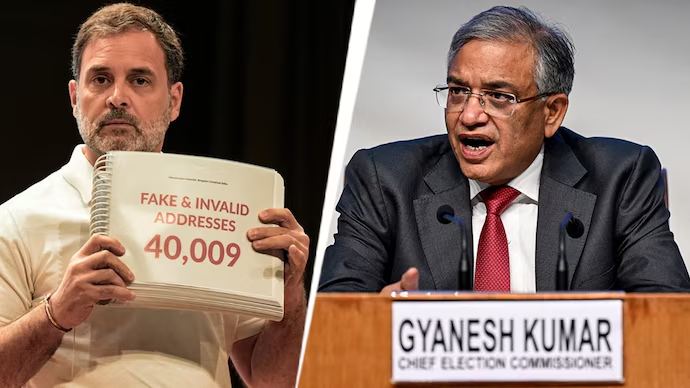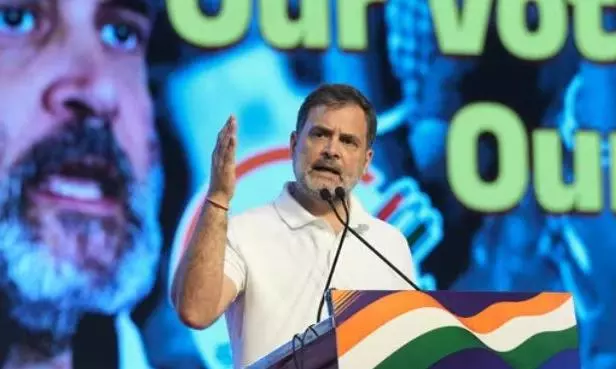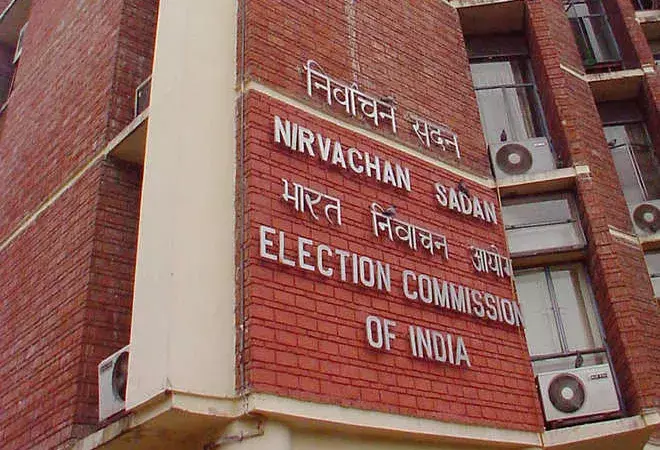
Don’t put democracy in ICU
text_fieldsThe nation still remembers former Chief Election Commissioner T. N. Seshan, and history records him, for leading elections that were transparent and based on the law. It was during his tenure that the people became aware that the country has an Election Commission and that it possesses extensive powers. His actions also helped instil a culture among political parties, regardless of ruling or opposition, to follow the code of conduct related to election campaigns and expenses.
Now, how will history record our current Chief Election Commissioner, Gyanesh Kumar, and the other Election Commissioners? In any case, it is certain that it will not be in the name of transparent elections or good performance. On the contrary, what makes them figure in the news are serious allegations that the current Commission has colluded with the ruling party to manipulate elections. Based on evidence that has emerged, if anyone criticises the Election Commission as a constituent of the ruling alliance, it cannot be dismissed lightly. The press conference held by the Election Commission on Sunday confirms this criticism. About nine days ago, Opposition Leader Rahul Gandhi held a press conference alleging that the country’s Lok Sabha and Assembly elections were being rigged under the leadership of the Election Commission. Despite repeated requests, the Commission did not provide the digital voter list. The Opposition Leader presented the media with complete figures of voters from various constituencies provided in bundles of paper by the Commission itself, offering clear evidence. He also substantiated with evidence that the last Lok Sabha elections, as well as the elections to the Haryana and Maharashtra Assemblies, were subjected to manipulation. One may note that this was the first time in the country that a press conference, with such substantial evidence, explosive information and data, was held on poll irregularities. Subsequently, opposition parties and various media outlets released numerous pieces of evidence on the matter. And inKerala multiple pieces of evidence have also emerged raising suspicions that similar manipulations played a role in the victory of a BJP representative for the first time to the Lok Sabha frim the state. Although the national media supporting the central government largely ignored the press conference, these issues are spreading across the country through social media. The credibility of the Election Commission and the authenticity of the BJP’s victories were both put under doubt. After days of silence, the Commission finally broke its silence with a press conference.
The day and time chosen for the presser was that of the journey of 1,600 kilometres to Bihar, where the next elections are approaching, to bring the issue of vote theft to the people. However, the press conference proved a complete failure, as the Election Commission neither gave any clarity to the issues in the serious allegations raised against it nor provided factual responses to a single charge. This has only further cornered the Commission. The Opposition Leader highlighted issues such as double voters, voters without proper addresses, 50 to 80 voters listed at a single address, voters without photos, and fake voters added through Form-6 for new voters. The Commission did not give clear answers to any of these. The Commission’s argument that CCTV footage cannot be shared due to privacy concerns has been widely ridiculed. Numerous questions also arose regarding the special intense re-verification (SIR) taking place in Bihar, but no responses were given. The Commission did not answer a single question that was inconvenient or challenging for it. Instead, it repeatedly demanded that the Opposition Leader who raised the allegations apologise.
Questions remain unanswered, such as why the Commission did not consult political parties before the SIR, why in Bihar it violated its own guideline that intense re-verification is not needed in an election year, how many voters were newly added during the month-long SIR, and why the voter list format was changed after Rahul Gandhi’s press conference. A new survey conducted in 19 states reveals that the people of the country have lost trust in the Election Commission. In the new context, the survey findings are highly significant. The biggest decline in trust was recorded in Madhya Pradesh, where the number of those with high level of trust fell from 57 percent to 17 percent; in Delhi, it dropped from 60 to 21 percent; and in Uttar Pradesh, it fell from 56 to 21 percent. It is unlikely that the current Commission or the ruling party will take steps to regain credibility. If voters and political parties do not exercise greater vigilance, there is a great possibility that the country’s democracy could be put in ICU.




















